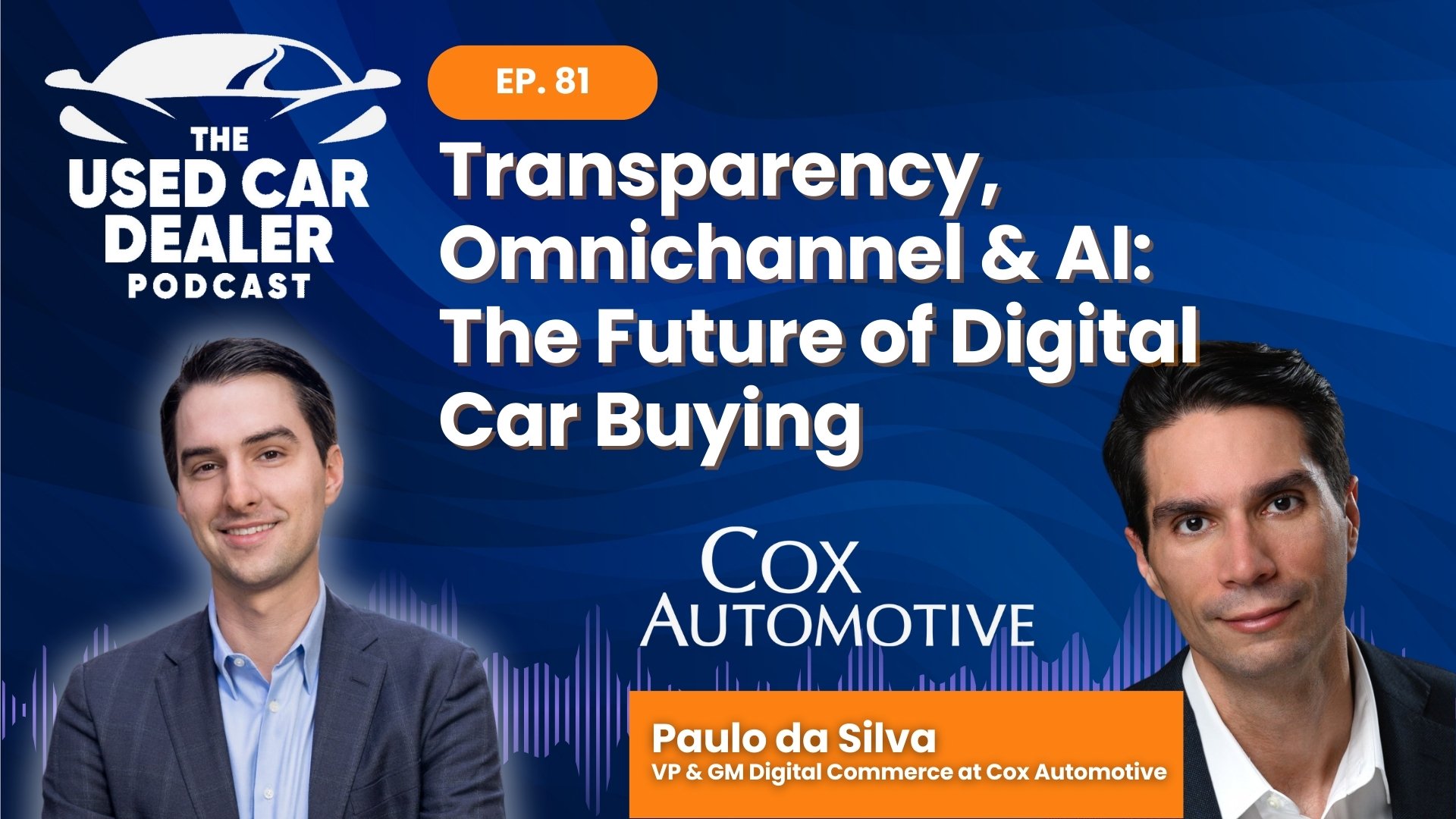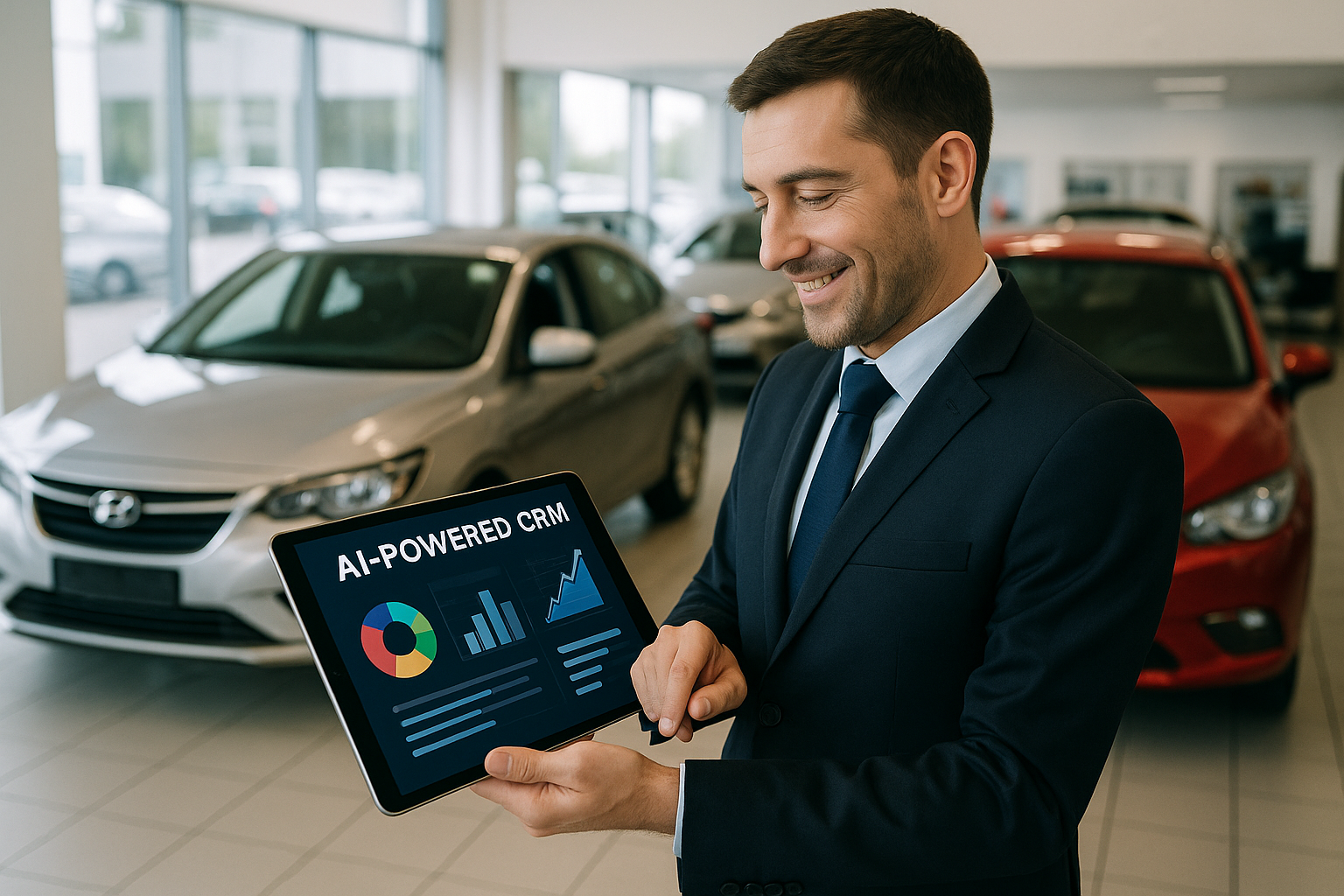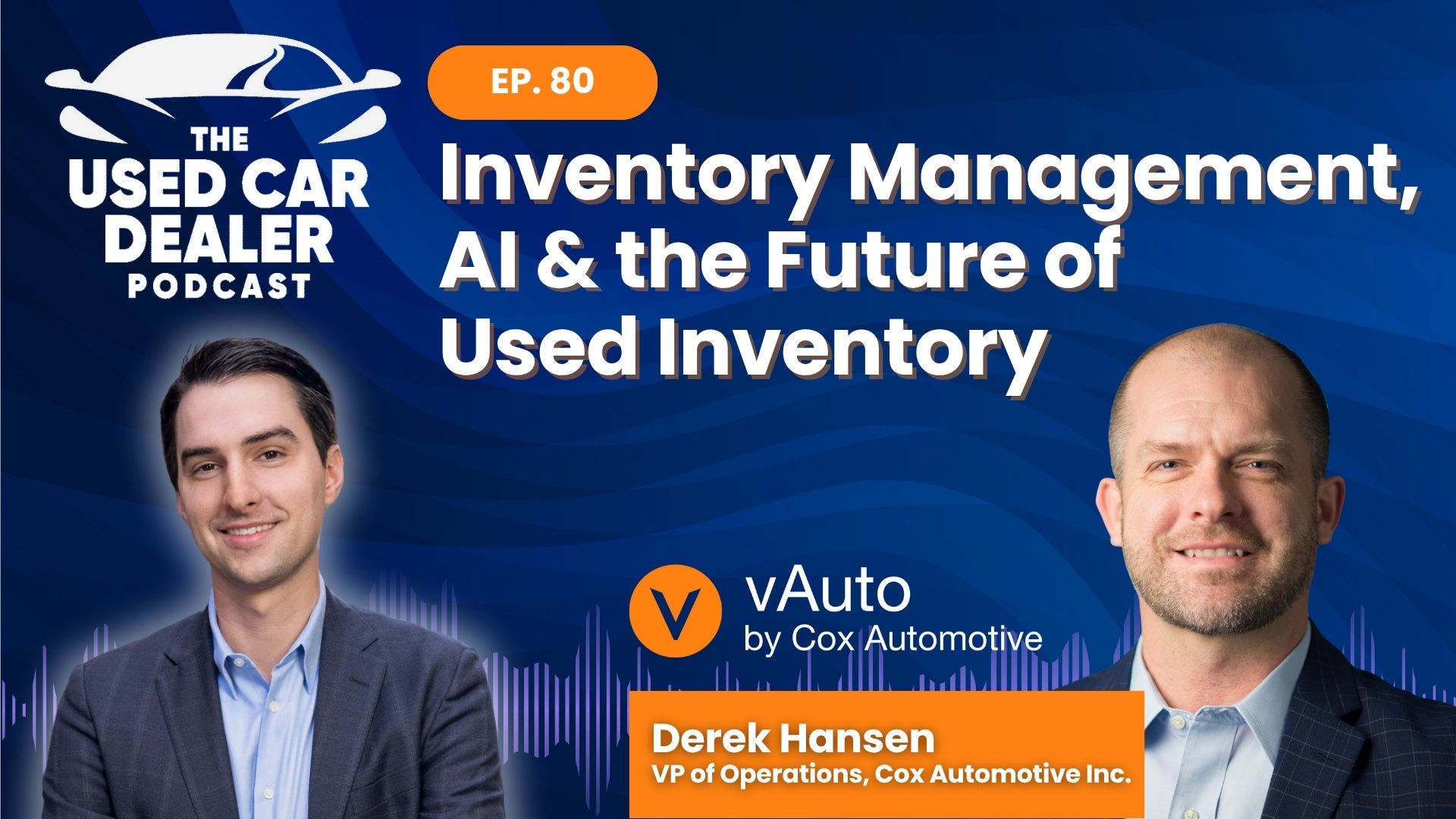In 2025 used-car retailers compete in an environment where inventory turns faster, profit margins tighten, and shoppers swipe between brands the moment a response lags. That pressure explains why the phrase automotive CRM is now searched more than ever; dealers know that the store that answers first usually wins the deal. A modern car-sales CRM is no longer a digital Rolodex: it is the command center that captures every lead, nurtures every conversation, and records every deal, whether prospects originate from paid search, third-party marketplaces (TrueCar, CarGurus, Cars.com), or a Saturday walk-in. Think of it as a sales, marketing, and retention engine stitched together by data instead of duct tape.
An automotive CRM in plain language is software that keeps track of everyone who inquired about a vehicle, logs every email, text, call, or showroom visit, reminds staff what to do next, and tells management which channels actually close. Picture a recent graduate scrolling for a first car at midnight. He fills out a form on your VDP, the CRM pings a Sales Representative, schedules an automatic text with a friendly greeting, and reserves a follow-up call for the next morning, all before you finish locking the lot. That orchestration is invisible to the shopper, yet it is the difference between earning trust and losing the customer to a rival dealership down the street.
Because technology matures quickly, the best automotive CRM 2025 contenders share several must-have capabilities. First, AI (artificial-intelligence) engagement moves beyond canned sequences; machine learning studies past replies and times the next outreach for maximum open probability. Second, native texting is essential; prospects reply to SMS within minutes while email may sit unread for days. Third, tight DMS synchronization eliminates double entry and keeps deal jackets compliant. Fourth, a native mobile app mirrors desktop functions so salespeople can log notes from the car lot, the service drive, or their sofa. Finally, two-factor authentication and encrypted cloud hosting protect sensitive data and keep customer and privacy regulators satisfied.
Digging deeper into AI, rather than forcing your BDC to guess, the CRM pushes high-propensity shoppers to the top of the queue and even drafts the first personalized text. Over time the model learns which inventory resonates with specific zip codes and suggests alternative vehicles before a prospect drifts away. That kind of guidance was once reserved for luxury groups with in-house data scientists; in 2025 it is expected from any platform that calls itself best automotive CRM.
Texting drives the second wave of transformation. A platform without embedded SMS feels antique because customers instinctively tap the message icon instead of dialing a number. A car-sales CRM should display every text thread next to recorded calls and emails so context never gets lost when a salesperson hands the baton to finance or the used-car manager. When that conversation also syncs back into your DMS and accounting software, management can review the entire lifecycle of a lead—from first inquiry through F&I menu acceptance—without hopping through disconnected screens.
Mobility matters just as much as intelligence. Independent dealers often wear five hats in a single afternoon, and franchise rooftops operate across sprawling lots. A true mobile-first, dealer-fast experience lets staff snap VIN barcodes, initiate video walk-arounds, and send credit app links directly from their phones. Real-time push notifications ensure that no internet lead sits idle, whether the salesperson is at lunch or checking in cars for auction transport. Meanwhile, cloud hosting guarantees that ownership can track performance from any device, instantly comparing sales velocity across stores and identifying inventory shortages before month-end.
The benefits extend to operations of every scale. Independent stores gain a trusted assistant that centralizes digital retailing, manages follow-ups, and builds an owned audience for future trade-in campaigns—an edge that previously belonged only to franchise networks. Large groups tap multi-rooftop dashboards to unify data across brands, standardize processes, and spot cross-selling opportunities between their Buick GMC and pre-owned superstores. Regardless of size, every dealer using a used-car CRM with built-in automation typically sees higher appointment show rates, shorter sales cycles, and improved CSI scores because buyers feel heard from first click to final handshake.
Before signing a contract, savvy operators run a buyer checklist: confirm the vendor supports AI-driven drip campaigns, real-time SMS, secure DMS bi-directional updates, configurable dashboards, open APIs for inventory exports, and fast onboarding that does not derail the showroom. Evaluate uptime SLAs, role-based permissions, and whether support is offered by automotive experts rather than generic call centers. Ask for evidence of dealers who switched from legacy products like AutoRaptor and measured increases in lead-to-sale conversion. Finally, insist on transparent pricing that scales per rooftop so cost aligns with growth instead of punishing success.
If you are ready to replace scattered spreadsheets with a single source of truth, experience a platform built specifically for used-car operations and proven at hundreds of rooftops worldwide. Visit sellyautomotive.com today to schedule a personalized demo and receive a product overview that shows exactly how Selly’s AI-powered automotive CRM helps you connect faster, sell smarter, and retain buyers for life.

.jpg)

.png)




.jpg)
.jpg)
.jpg)
.jpg)

.png)
.png)
